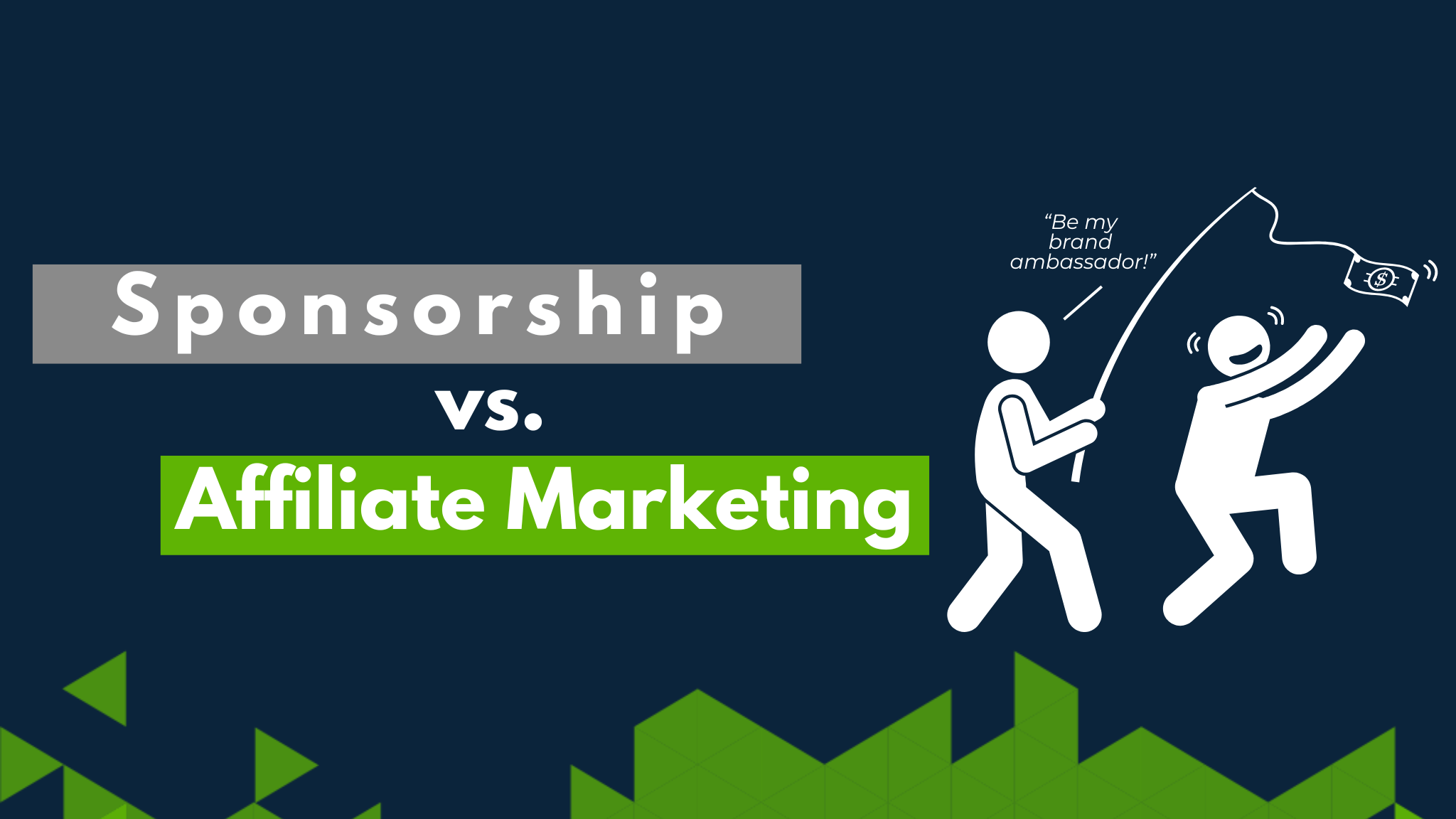
Sponsorship Sellers: Don’t Get Trapped By Affiliate Marketing
What’s Happening in the Market?
Increasingly, two powerful marketing tools continue to bump into each other in business: affiliate marketing and sponsorship. While both approaches have their unique benefits, there’s a growing trend where businesses are nudging sponsorship sellers towards affiliate marketing programs instead of traditional sponsorships. This shift, although advantageous for businesses, presents significant challenges for sellers, particularly in maintaining the integrity of their sponsorship categories.
Affiliate marketing is a performance-based marketing strategy where an affiliate earns a commission for marketing another company’s products. This method is attractive to businesses because it’s like having an army of salespeople working on a commission-only basis. The more they sell, the more they earn. It’s a win-win for the business as they get increased sales without upfront sales costs.
On the other hand, sponsorship is financial or in-kind support given to an event, activity, person, or organization. Businesses that act as sponsors usually do so for brand exposure and to align with the positive image of the entity they support. Unlike affiliate marketing, sponsorship is not directly sales-driven but focuses on brand association and awareness.
At CHARGE, we’re seeing this trend more and more each day. Worldwide, affiliate marketing activity has reached over $17 billion annually and is growing. It’s growing because it works for businesses selling products or services. The problem is that in many cases, it does not work for the sponsorship seeker.
Why It Happens to You
If you’re an athlete, fair, festival, entertainment property, non-profit, or small team or league, you will encounter this dilemma if you have an online audience. The dialogue with a prospective sponsor goes something like this:
Seller: “As you can see from my sponsorship deck, our property would be a great partner for your company.”
Marketing Manager: “Well. We don’t really have a budget for sponsorship. However, I looked at your Instagram account and think you’d be great for our “brand ambassador” program.”
Seller: “What’s that?”
Marketing Manager: “We set you up with marketing links, and you help us promote our products. If a consumer buys a product via your link, you get paid. Doesn’t that sound great?”
Not exactly.
The issue arises because certain businesses start to favor affiliate marketing over sponsorship. This preference isn’t necessarily because one is better than the other but because affiliate marketing often promises immediate and measurable returns in terms of sales. For sellers, especially those representing events, teams, or organizations (properties), this shift can be problematic.
What’s “the Trap”?
When a property is trying to sell a sponsorship, they are offering a business more than just sales opportunities. They offer brand exposure, alignment with a particular audience, and the chance to be associated with certain values or lifestyles. However, if businesses push these properties towards their affiliate programs, the unique benefits of sponsorship are undervalued.
Moreover, steering towards affiliate marketing can ‘kill the category’ for sellers. No brand competing with your affiliate marketing partner will sponsor you. This means that the unique market segment or opportunity that sponsorship represents gets diluted. Instead of being associated with a specific event or cause, the property is now just another channel for pushing products or services. This dilution can lead to a loss of identity and value for the property.
Furthermore, the reliance on affiliate marketing over sponsorship could lead to short-term thinking. While affiliate marketing can drive immediate sales, sponsorship is often about long-term brand building and relationships. The depth of connection and brand loyalty that can be developed through sponsorship is hard to replicate with affiliate marketing.
What Should You Do?
It’s important for businesses to understand that while affiliate marketing offers immediate sales benefits, sponsorship provides a depth of brand association and customer loyalty that can’t be easily quantified. For sellers representing properties, it’s crucial to articulate these differences and the unique value that sponsorship brings.
We arm our clients with specific sales scripts to flip affiliate marketing offers into sponsorships. If you want to stop struggling with the same issue, check out the Sponsorship Success Method.
Final Thoughts
In conclusion, while affiliate marketing and sponsorship are both valuable marketing tools, the current trend of businesses favoring affiliate marketing poses challenges for sellers in the sponsorship space. It’s vital for both parties to recognize the distinct benefits of each approach and work towards a balanced marketing strategy that respects and utilizes the strengths of both. For a healthy business ecosystem, it’s not about choosing one over the other, but understanding how each can complement the other in building a robust and diversified marketing portfolio.


